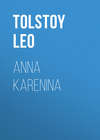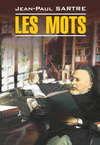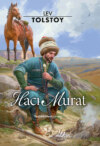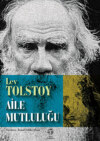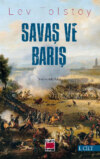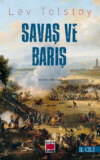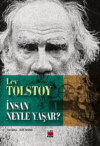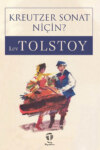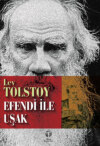Kitabı oku: «Anna Karenina», sayfa 7
Chapter 19
When Anna went into the room, Dolly was sitting in the little drawing-room with a white-headed fat little boy, already like his father, giving him a lesson in French reading. As the boy read, he kept twisting and trying to tear off a button that was nearly off his jacket. His mother had several times taken his hand from it, but the fat little hand went back to the button again. His mother pulled the button off and put it in her pocket.
"Keep your hands still, Grisha," she said, and she took up her work, a coverlet she had long been making. She always set to work on it at depressed moments, and now she knitted at it nervously, twitching her fingers and counting the stitches. Though she had sent word the day before to her husband that it was nothing to her whether his sister came or not, she had made everything ready for her arrival, and was expecting her sister-in-law with emotion.
Dolly was crushed by her sorrow, utterly swallowed up by it. Still she did not forget that Anna, her sister-in-law, was the wife of one of the most important personages in Petersburg, and was a Petersburg grande dame. And, thanks to this circumstance, she did not carry out her threat to her husband – that is to say, she remembered that her sister-in-law was coming. "And, after all, Anna is in no wise to blame," thought Dolly. "I know nothing of her except the very best, and I have seen nothing but kindness and affection from her towards myself." It was true that as far as she could recall her impressions at Petersburg at the Karenins’, she did not like their household itself; there was something artificial in the whole framework of their family life. "But why should I not receive her? If only she doesn’t take it into her head to console me!" thought Dolly. "All consolation and counsel and Christian forgiveness, all that I have thought over a thousand times, and it’s all no use."
All these days Dolly had been alone with her children. She did not want to talk of her sorrow, but with that sorrow in her heart she could not talk of outside matters. She knew that in one way or another she would tell Anna everything, and she was alternately glad at the thought of speaking freely, and angry at the necessity of speaking of her humiliation with her, his sister, and of hearing her ready-made phrases of good advice and comfort. She had been on the lookout for her, glancing at her watch every minute, and, as so often happens, let slip just that minute when her visitor arrived, so that she did not hear the bell.
Catching a sound of skirts and light steps at the door, she looked round, and her care-worn face unconsciously expressed not gladness, but wonder. She got up and embraced her sister-in-law.
"What, here already!" she said as she kissed her.
"Dolly, how glad I am to see you!"
"I am glad, too," said Dolly, faintly smiling, and trying by the expression of Anna’s face to find out whether she knew. "Most likely she knows," she thought, noticing the sympathy in Anna’s face. "Well, come along, I’ll take you to your room," she went on, trying to defer as long as possible the moment of confidences.
"Is this Grisha? Heavens, how he’s grown!" said Anna; and kissing him, never taking her eyes off Dolly, she stood still and flushed a little. "No, please, let us stay here."
She took off her kerchief and her hat, and catching it in a lock of her black hair, which was a mass of curls, she tossed her head and shook her hair down.
"You are radiant with health and happiness!" said Dolly, almost with envy.
"I?.. Yes," said Anna. "Merciful heavens, Tanya! You’re the same age as my Seryozha," she added, addressing the little girl as she ran in. She took her in her arms and kissed her. "Delightful child, delightful! Show me them all."
She mentioned them, not only remembering the names, but the years, months, characters, illnesses of all the children, and Dolly could not but appreciate that.
"Very well, we will go to them," she said. "It’s a pity Vassya’s asleep."
After seeing the children, they sat down, alone now, in the drawing room, to coffee. Anna took the tray, and then pushed it away from her.
"Dolly," she said, "he has told me."
Dolly looked coldly at Anna; she was waiting now for phrases of conventional sympathy, but Anna said nothing of the sort.
"Dolly, dear," she said, "I don’t want to speak for him to you, nor to try to comfort you; that’s impossible. But, darling, I’m simply sorry, sorry from my heart for you!"
Under the thick lashes of her shining eyes tears suddenly glittered. She moved nearer to her sister-in-law and took her hand in her vigorous little hand. Dolly did not shrink away, but her face did not lose its frigid expression. She said:
"To comfort me’s impossible. Everything’s lost after what has happened, everything’s over!"
And directly she had said this, her face suddenly softened. Anna lifted the wasted, thin hand of Dolly, kissed it and said:
"But, Dolly, what’s to be done, what’s to be done? How is it best to act in this awful position – that’s what you must think of."
"All’s over, and there’s nothing more," said Dolly. "And the worst of all is, you see, that I can’t cast him off: there are the children, I am tied. And I can’t live with him! it’s a torture to me to see him."
"Dolly, darling, he has spoken to me, but I want to hear it from you: tell me about it."
Dolly looked at her inquiringly.
Sympathy and love unfeigned were visible on Anna’s face.
"Very well," she said all at once. "But I will tell you it from the beginning. You know how I was married. With the education mamma gave us I was more than innocent, I was stupid. I knew nothing. I know they say men tell their wives of their former lives, but Stiva" – she corrected herself – "Stepan Arkadyevitch told me nothing. You’ll hardly believe it, but till now I imagined that I was the only woman he had known. So I lived eight years. You must understand that I was so far from suspecting infidelity, I regarded it as impossible, and then – try to imagine it – with such ideas, to find out suddenly all the horror, all the loathsomeness… You must try and understand me. To be fully convinced of one’s happiness, and all at once…" continued Dolly, holding back her sobs, "to get a letter … his letter to his mistress, my governess. No, it’s too awful!" She hastily pulled out her handkerchief and hid her face in it. "I can understand being carried away by feeling," she went on after a brief silence, "but deliberately, slyly deceiving me … and with whom?.. To go on being my husband together with her … it’s awful! You can’t understand…"
"Oh, yes, I understand! I understand! Dolly, dearest, I do understand," said Anna, pressing her hand.
"And do you imagine he realizes all the awfulness of my position?" Dolly resumed. "Not the slightest! He’s happy and contented."
"Oh, no!" Anna interposed quickly. "He’s to be pitied, he’s weighed down by remorse…"
"Is he capable of remorse?" Dolly interrupted, gazing intently into her sister-in-law’s face.
"Yes. I know him. I could not look at him without feeling sorry for him. We both know him. He’s good-hearted, but he’s proud, and now he’s so humiliated. What touched me most…" (and here Anna guessed what would touch Dolly most) "he’s tortured by two things: that he’s ashamed for the children’s sake, and that, loving you – yes, yes, loving you beyond everything on earth," she hurriedly interrupted Dolly, who would have answered – "he has hurt you, pierced you to the heart. ‘No, no, she cannot forgive me,’ he keeps saying."
Dolly looked dreamily away beyond her sister-in-law as she listened to her words.
"Yes, I can see that his position is awful; it’s worse for the guilty than the innocent," she said, "if he feels that all the misery comes from his fault. But how am I to forgive him, how am I to be his wife again after her? For me to live with him now would be torture, just because I love my past love for him…"
And sobs cut short her words. But as though of set design, each time she was softened she began to speak again of what exasperated her.
"She’s young, you see, she’s pretty," she went on. "Do you know, Anna, my youth and my beauty are gone, taken by whom? By him and his children. I have worked for him, and all I had has gone in his service, and now of course any fresh, vulgar creature has more charm for him. No doubt they talked of me together, or, worse still, they were silent. Do you understand?"
Again her eyes glowed with hatred.
"And after that he will tell me… What! can I believe him? Never! No, everything is over, everything that once made my comfort, the reward of my work, and my sufferings… Would you believe it, I was teaching Grisha just now: once this was a joy to me, now it is a torture. What have I to strive and toil for? Why are the children here? What’s so awful is that all at once my heart’s turned, and instead of love and tenderness, I have nothing but hatred for him; yes, hatred. I could kill him."
"Darling Dolly, I understand, but don’t torture yourself. You are so distressed, so overwrought, that you look at many things mistakenly."
Dolly grew calmer, and for two minutes both were silent.
"What’s to be done? Think for me, Anna, help me. I have thought over everything, and I see nothing."
Anna could think of nothing, but her heart responded instantly to each word, to each change of expression of her sister-in-law.
"One thing I would say," began Anna. "I am his sister, I know his character, that faculty of forgetting everything, everything" (she waved her hand before her forehead), "that faculty for being completely carried away, but for completely repenting too. He cannot believe it, he cannot comprehend now how he can have acted as he did."
"No; he understands, he understood!" Dolly broke in. "But I … you are forgetting me … does it make it easier for me?"
"Wait a minute. When he told me, I will own I did not realize all the awfulness of your position. I saw nothing but him, and that the family was broken up. I felt sorry for him, but after talking to you, I see it, as a woman, quite differently. I see your agony, and I can’t tell you how sorry I am for you! But, Dolly, darling, I fully realize your sufferings, only there is one thing I don’t know; I don’t know … I don’t know how much love there is still in your heart for him. That you know – whether there is enough for you to be able to forgive him. If there is, forgive him!"
"No," Dolly was beginning, but Anna cut her short, kissing her hand once more.
"I know more of the world than you do," she said. "I know how men like Stiva look at it. You speak of his talking of you with her. That never happened. Such men are unfaithful, but their home and wife are sacred to them. Somehow or other these women are still looked on with contempt by them, and do not touch on their feeling for their family. They draw a sort of line that can’t be crossed between them and their families. I don’t understand it, but it is so."
"Yes, but he has kissed her…"
"Dolly, hush, darling. I saw Stiva when he was in love with you. I remember the time when he came to me and cried, talking of you, and all the poetry and loftiness of his feeling for you, and I know that the longer he has lived with you the loftier you have been in his eyes. You know we have sometimes laughed at him for putting in at every word: ‘Dolly’s a marvelous woman.’ You have always been a divinity for him, and you are that still, and this has not been an infidelity of the heart…"
"But if it is repeated?"
"It cannot be, as I understand it…"
"Yes, but could you forgive it?"
"I don’t know, I can’t judge… Yes, I can," said Anna, thinking a moment; and grasping the position in her thought and weighing it in her inner balance, she added: "Yes, I can, I can, I can. Yes, I could forgive it. I could not be the same, no; but I could forgive it, and forgive it as though it had never been, never been at all…"
"Oh, of course," Dolly interposed quickly, as though saying what she had more than once thought, "else it would not be forgiveness. If one forgives, it must be completely, completely. Come, let us go; I’ll take you to your room," she said, getting up, and on the way she embraced Anna. "My dear, how glad I am you came. It has made things better, ever so much better."
Chapter 20
The whole of that day Anna spent at home, that’s to say at the Oblonskys’, and received no one, though some of her acquaintances had already heard of her arrival, and came to call the same day. Anna spent the whole morning with Dolly and the children. She merely sent a brief note to her brother to tell him that he must not fail to dine at home. "Come, God is merciful," she wrote.
Oblonsky did dine at home: the conversation was general, and his wife, speaking to him, addressed him as "Stiva," as she had not done before. In the relations of the husband and wife the same estrangement still remained, but there was no talk now of separation, and Stepan Arkadyevitch saw the possibility of explanation and reconciliation.
Immediately after dinner Kitty came in. She knew Anna Arkadyevna, but only very slightly, and she came now to her sister’s with some trepidation, at the prospect of meeting this fashionable Petersburg lady, whom everyone spoke so highly of. But she made a favorable impression on Anna Arkadyevna – she saw that at once. Anna was unmistakably admiring her loveliness and her youth: before Kitty knew where she was she found herself not merely under Anna’s sway, but in love with her, as young girls do fall in love with older and married women. Anna was not like a fashionable lady, nor the mother of a boy of eight years old. In the elasticity of her movements, the freshness and the unflagging eagerness which persisted in her face, and broke out in her smile and her glance, she would rather have passed for a girl of twenty, had it not been for a serious and at times mournful look in her eyes, which struck and attracted Kitty. Kitty felt that Anna was perfectly simple and was concealing nothing, but that she had another higher world of interests inaccessible to her, complex and poetic.
After dinner, when Dolly went away to her own room, Anna rose quickly and went up to her brother, who was just lighting a cigar.
"Stiva," she said to him, winking gaily, crossing him and glancing towards the door, "go, and God help you."
He threw down the cigar, understanding her, and departed through the doorway.
When Stepan Arkadyevitch had disappeared, she went back to the sofa where she had been sitting, surrounded by the children. Either because the children saw that their mother was fond of this aunt, or that they felt a special charm in her themselves, the two elder ones, and the younger following their lead, as children so often do, had clung about their new aunt since before dinner, and would not leave her side. And it had become a sort of game among them to sit a close as possible to their aunt, to touch her, hold her little hand, kiss it, play with her ring, or even touch the flounce of her skirt.
"Come, come, as we were sitting before," said Anna Arkadyevna, sitting down in her place.
And again Grisha poked his little face under her arm, and nestled with his head on her gown, beaming with pride and happiness.
"And when is your next ball?" she asked Kitty.
"Next week, and a splendid ball. One of those balls where one always enjoys oneself."
"Why, are there balls where one always enjoys oneself?" Anna said, with tender irony.
"It’s strange, but there are. At the Bobrishtchevs’ one always enjoys oneself, and at the Nikitins’ too, while at the Mezhkovs’ it’s always dull. Haven’t you noticed it?"
"No, my dear, for me there are no balls now where one enjoys oneself," said Anna, and Kitty detected in her eyes that mysterious world which was not open to her. "For me there are some less dull and tiresome."
"How can you be dull at a ball?"
"Why should not I be dull at a ball?" inquired Anna.
Kitty perceived that Anna knew what answer would follow.
"Because you always look nicer than anyone."
Anna had the faculty of blushing. She blushed a little, and said:
"In the first place it’s never so; and secondly, if it were, what difference would it make to me?"
"Are you coming to this ball?" asked Kitty.
"I imagine it won’t be possible to avoid going. Here, take it," she said to Tanya, who was pulling the loosely-fitting ring off her white, slender-tipped finger.
"I shall be so glad if you go. I should so like to see you at a ball."
"Anyway, if I do go, I shall comfort myself with the thought that it’s a pleasure to you … Grisha, don’t pull my hair. It’s untidy enough without that," she said, putting up a straying lock, which Grisha had been playing with.
"I imagine you at the ball in lilac."
"And why in lilac precisely?" asked Anna, smiling. "Now, children, run along, run along. Do you hear? Miss Hoole is calling you to tea," she said, tearing the children from her, and sending them off to the dining room.
"I know why you press me to come to the ball. You expect a great deal of this ball, and you want everyone to be there to take part in it."
"How do you know? Yes."
"Oh! what a happy time you are at," pursued Anna. "I remember, and I know that blue haze like the mist on the mountains in Switzerland. That mist which covers everything in that blissful time when childhood is just ending, and out of that vast circle, happy and gay, there is a path growing narrower and narrower, and it is delightful and alarming to enter the ballroom, bright and splendid as it is… Who has not been through it?"
Kitty smiled without speaking. "But how did she go through it? How I should like to know all her love story!" thought Kitty, recalling the unromantic appearance of Alexey Alexandrovitch, her husband.
"I know something. Stiva told me, and I congratulate you. I liked him so much," Anna continued. "I met Vronsky at the railway station."
"Oh, was he there?" asked Kitty, blushing. "What was it Stiva told you?"
"Stiva gossiped about it all. And I should be so glad … I traveled yesterday with Vronsky’s mother," she went on; "and his mother talked without a pause of him, he’s her favorite. I know mothers are partial, but…"
"What did his mother tell you?"
"Oh, a great deal! And I know that he’s her favorite; still one can see how chivalrous he is… Well, for instance, she told me that he had wanted to give up all his property to his brother, that he had done something extraordinary when he was quite a child, saved a woman out of the water. He’s a hero, in fact," said Anna, smiling and recollecting the two hundred roubles he had given at the station.
But she did not tell Kitty about the two hundred roubles. For some reason it was disagreeable to her to think of it. She felt that there was something that had to do with her in it, and something that ought not to have been.
"She pressed me very much to go and see her," Anna went on; "and I shall be glad to go to see her tomorrow. Stiva is staying a long while in Dolly’s room, thank God," Anna added, changing the subject, and getting up, Kitty fancied, displeased with something.
"No, I’m first! No, I!" screamed the children, who had finished tea, running up to their Aunt Anna.
"All together," said Anna, and she ran laughing to meet them, and embraced and swung round all the throng of swarming children, shrieking with delight.
Chapter 21
Dolly came out of her room to the tea of the grown-up people. Stepan Arkadyevitch did not come out. He must have left his wife’s room by the other door.
"I am afraid you’ll be cold upstairs," observed Dolly, addressing Anna; "I want to move you downstairs, and we shall be nearer."
"Oh, please, don’t trouble about me," answered Anna, looking intently into Dolly’s face, trying to make out whether there had been a reconciliation or not.
"It will be lighter for you here," answered her sister-in-law.
"I assure you that I sleep everywhere, and always like a marmot."
"What’s the question?" inquired Stepan Arkadyevitch, coming out of his room and addressing his wife.
From his tone both Kitty and Anna knew that a reconciliation had taken place.
"I want to move Anna downstairs, but we must hang up blinds. No one knows how to do it; I must see to it myself," answered Dolly addressing him.
"God knows whether they are fully reconciled," thought Anna, hearing her tone, cold and composed.
"Oh, nonsense, Dolly, always making difficulties," answered her husband. "Come, I’ll do it all, if you like…"
"Yes, they must be reconciled," thought Anna.
"I know how you do everything," answered Dolly. "You tell Matvey to do what can’t be done, and go away yourself, leaving him to make a muddle of everything," and her habitual, mocking smile curved the corners of Dolly’s lips as she spoke.
"Full, full reconciliation, full," thought Anna; "thank God!" and rejoicing that she was the cause of it, she went up to Dolly and kissed her.
"Not at all. Why do you always look down on me and Matvey?" said Stepan Arkadyevitch, smiling hardly perceptibly, and addressing his wife.
The whole evening Dolly was, as always, a little mocking in her tone to her husband, while Stepan Arkadyevitch was happy and cheerful, but not so as to seem as though, having been forgiven, he had forgotten his offense.
At half-past nine o’clock a particularly joyful and pleasant family conversation over the tea-table at the Oblonskys’ was broken up by an apparently simple incident. But this simple incident for some reason struck everyone as strange. Talking about common acquaintances in Petersburg, Anna got up quickly.
"She is in my album," she said; "and, by the way, I’ll show you my Seryozha," she added, with a mother’s smile of pride.
Towards ten o’clock, when she usually said good-night to her son, and often before going to a ball put him to bed herself, she felt depressed at being so far from him; and whatever she was talking about, she kept coming back in thought to her curly-headed Seryozha. She longed to look at his photograph and talk of him. Seizing the first pretext, she got up, and with her light, resolute step went for her album. The stairs up to her room came out on the landing of the great warm main staircase.
Just as she was leaving the drawing room, a ring was heard in the hall.
"Who can that be?" said Dolly.
"It’s early for me to be fetched, and for anyone else it’s late," observed Kitty.
"Sure to be someone with papers for me," put in Stepan Arkadyevitch. When Anna was passing the top of the staircase, a servant was running up to announce the visitor, while the visitor himself was standing under a lamp. Anna glancing down at once recognized Vronsky, and a strange feeling of pleasure and at the same time of dread of something stirred in her heart. He was standing still, not taking off his coat, pulling something out of his pocket. At the instant when she was just facing the stairs, he raised his eyes, caught sight of her, and into the expression of his face there passed a shade of embarrassment and dismay. With a slight inclination of her head she passed, hearing behind her Stepan Arkadyevitch’s loud voice calling him to come up, and the quiet, soft, and composed voice of Vronsky refusing.
When Anna returned with the album, he was already gone, and Stepan Arkadyevitch was telling them that he had called to inquire about the dinner they were giving next day to a celebrity who had just arrived. "And nothing would induce him to come up. What a queer fellow he is!" added Stepan Arkadyevitch.
Kitty blushed. She thought that she was the only person who knew why he had come, and why he would not come up. "He has been at home," she thought, "and didn’t find me, and thought I should be here, but he did not come up because he thought it late, and Anna’s here."
All of them looked at each other, saying nothing, and began to look at Anna’s album.
There was nothing either exceptional or strange in a man’s calling at half-past nine on a friend to inquire details of a proposed dinner party and not coming in, but it seemed strange to all of them. Above all, it seemed strange and not right to Anna.
